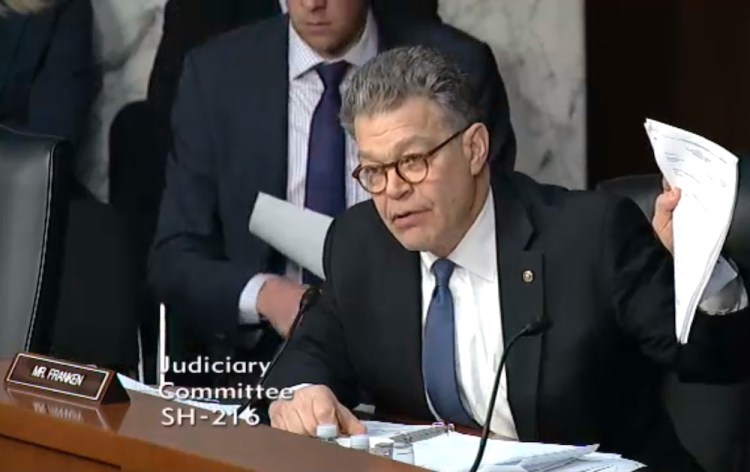Sen. Al Franken (D-Minn) is reintroducing a new piece of privacy legislation that prevents companies and government organizations from tracking a person’s location data.
While U.S. citizens already have a degree of privacy when it comes to their data, there are various legal loop holes and technicalities that allow some organizations to gain access to it anyways. The bill, titled the Location Privacy Protection Act of 2014 (LPPA), seeks to stop that while also giving consumers a greater degree of control over all location-based data that many web services use, especially services that take place over smartphones and other Internet-connected mobile devices.
More specifically, the bill will force Web services to gain permission from consumers before collecting and sharing location data collected on smartphones, tablets, or in-car navigation devices. It also requires any company tracking more than 1,000 people to publicly disclose location data tracking activity as well as why it’s collecting that data. The bill even goes as far as banning all “GPS stalking” applications and calls for law enforcement to seize any profits made from them to help fund further education about stopping location data-privacy violations.
As chair of the judiciary subcommittee on privacy and technology, Franken has scheduled a hearing to discuss the bill at length June 4, 2014. The bill, which was first introduced in 2012, should be of particular importance to many privacy advocates — not just because it would satisfy many of their concerns about how location data is being used unbeknownst to consumers, but also because Franken has proven to be very vocal on an issue that’s constantly been in the news since the NSA’s surveillance programs leaked last year.
In other words, this bill has a pretty decent shot of gaining enough attention to at least be brought to the floor for a vote, especially since the 2012 attempt had bipartisan support.
“Most Americans have smartphones now. And the companies that make the software on your phone, including apps, can access extremely sensitive location data that reveals where you live, where you work, where you drop your kids off at school, the church you attend, and the doctors you visit,” Franken said in a statement. “I believe that Americans have the right to control who can collect that information, and whether or not it can be given to third parties.
“But right now, companies — some legitimate, some not — are collecting your location and giving it to whomever they want,” he said. “My commonsense bill helps a whole range of people, and would finally put an end to GPS stalking apps that allow abusers to secretly track their victims.”
There are a host of reasons for why we need to be better about the legalese involving personal location data tracking that you’d be hard pressed to find people to disagree. One such example is making sure victims of domestic abuse are able to keep their location private to avoid further disputes that may endanger their well-being. This particular issue should be discussed at length during the hearing, as both the head of the justice department’s office on violence against women Bea Hanson and National Network to End Domestic Violence’s Cindy Southworth are listed as witnesses.
Of course, it’s worth noting that proposed legislation rarely passed into law without being altered many times to appease those that oppose certain elements. For example, the promising Patent Reform bill recently lost steam after some key changes before getting shelved by senate leaders yesterday.
VentureBeat's mission is to be a digital town square for technical decision-makers to gain knowledge about transformative enterprise technology and transact. Learn More

